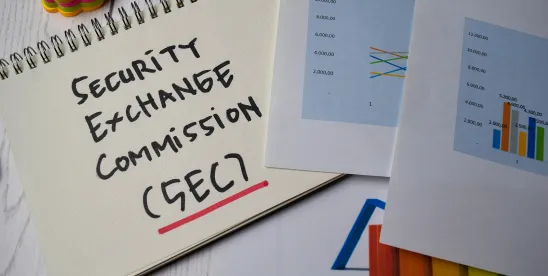Last week, the Securities and Exchange Commission announced that it had settled charges against a broker-dealer and two investment advisers for impeding their clients from reporting securities law violations to the SEC. According to the SEC, the three respondents had violated Rule 21F-17(a) which provides:
No person may take any action to impede an individual from communicating directly with the Commission staff about a possible securities law violation, including enforcing, or threatening to enforce, a confidentiality agreement (other than agreements dealing with information covered by § 240.21F-4(b)(4)(i) and § 240.21F-4(b)(4)(ii) of this chapter related to the legal representation of a client) with respect to such communications.
In re-reading the rule, I was reminded that it seemingly could apply to anyone, regardless of whether the person had offered and sold securities, was registered with the SEC, or had otherwise appeared or practiced before the SEC. In fact, one of the respondents in the case that the SEC just settled was a state-registered investment adviser.
The SEC adopted Rule 21F-17(a) in 2011 following Congress' enactment of whistleblower protections as part of the Dodd-Frank Wall Street Reform and Consumer Protection Act in 2010 (P.L. 11-203 (July 10, 2010)). Those protections are codified in Section 21F (15 U.S.C. § 78u-6). Notably, however, Section 21F (the statute) expressly prohibits only retaliation by employers for, among other things, providing information to the SEC. Nor does Section 21F directly prohibit anyone of from impeding communications with the SEC. Rule 21F-17(a) in contrast is not limited to employers and much more broadly prohibits impeding (which is not even defined in the rule). Arguably, the SEC could charge an airline with violating the rule if it cancels a whistleblower's flight to meet with the SEC. See Could The SEC Ask Airlines To Produce Data On Delayed And Canceled Flights?
In proposing Rule 21F-17(a), the SEC cited its view that "the Congressional purpose underlying Section 21F of the Exchange Act is to encourage whistleblowers to report potential violations of the securities laws by providing financial incentives, prohibiting employment-related retaliation, and providing various confidentiality guarantees". Congress, however, did not grant the SEC the authority to adopt rules to implement the unstated purposes of Section 21F. Rather, Congress expressly empowered the SEC with the authority only to implement the provisions of Section 21F consistent with the purposes of that statute:
The Commission shall have the authority to issue such rules and regulations as may be necessary or appropriate to implement the provisions of this section consistent with the purposes of this section.
15 U.S.C. § 78u-6(j).
For more on the SEC's recently settled action, see Doug Cornelius' post at Compliance Building.



 />i
/>i
